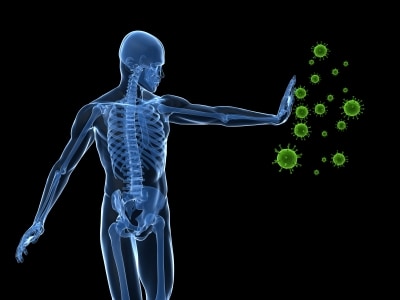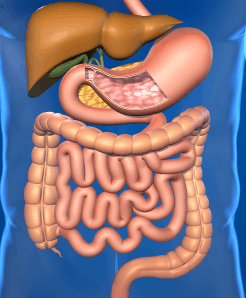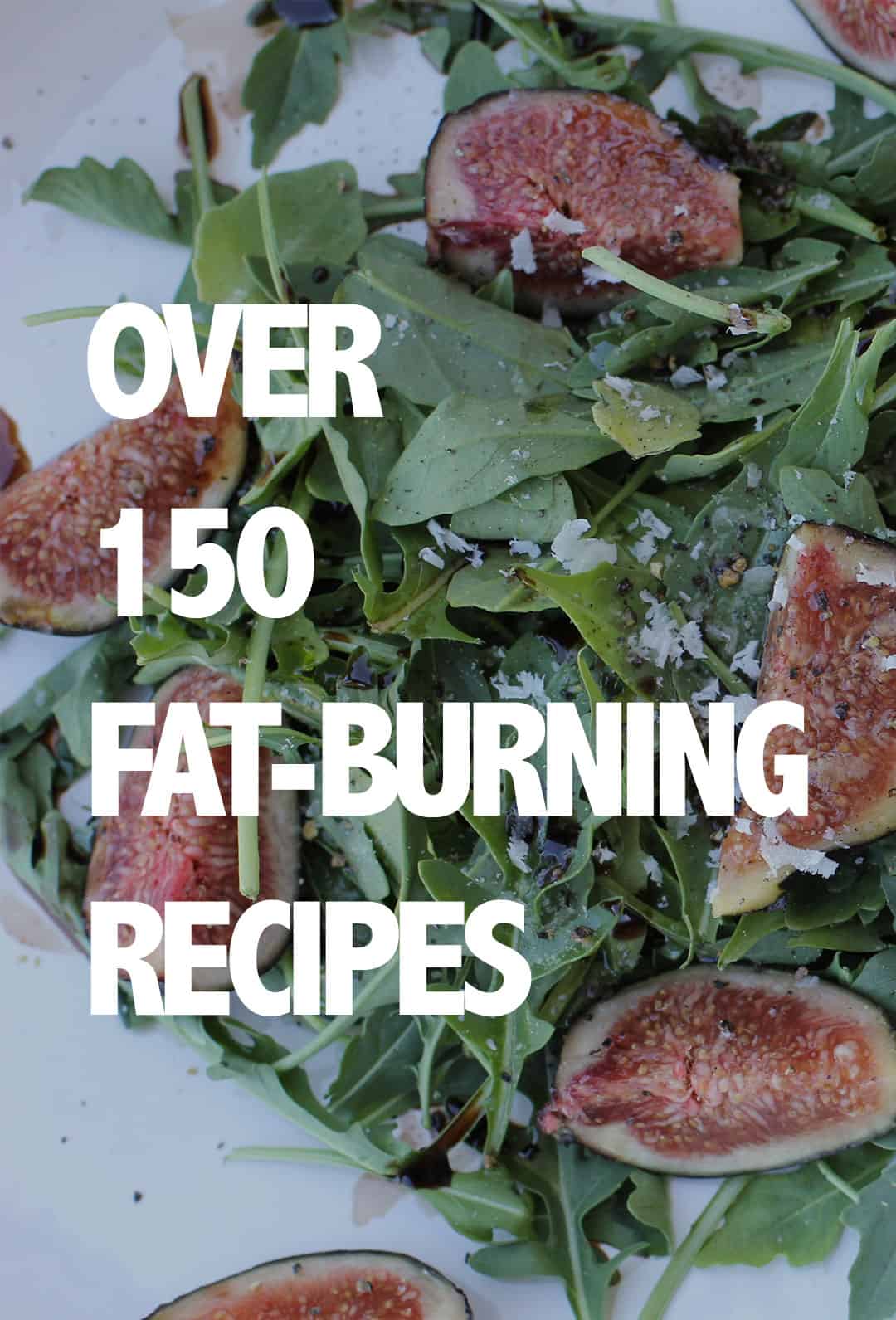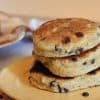Of all the information that is out there on fat loss and muscle-building, there is one aspect of these things that gets far too little attention.
Although we hear an awful lot of about gut health, bacteria and probiotics when it comes to conditions such as food allergies, inflammation and autoimmune disease, there’s not as much being said about the connection between gut health, fat loss and fitness. This is a shame, because the connection is very clear and it may just be the one thing that you haven’t utilized to help you finally shed that fat, build that muscle and create the body you really want.
I want to share with you some very important information on gut health, the most common causes of imbalance in your gut, how those imbalances keep you from having the body you desire and what you can do to fix them.
Your Gut is More Important than You Think
When most people think about the gastrointestinal tract (GI) or gut, they think about digestion and waste. When they think about problems in the digestive tract, most of them think about gas, bloating, cramping and irregularity. Those things are true, but they’re just a small fraction of the truth.
Did you know that 80% of your immune system is located in your digestive tract? When your digestive system is unhealthy and out of balance, your immune system is severely compromised.
Did you know that nutrient absorption takes place in your intestines, not your stomach? When your gut is unhealthy due to bacterial imbalance, toxic buildup and food allergies such as Celiac disease, your ability to absorb nutrients is seriously hampered.
When your nutrient absorption is compromised, your hormone levels also become unbalanced.
These three things mean you’re vulnerable to a variety of health conditions, but they also make it extremely difficult to shed fat and build muscle. Here’s why:
- Chronic inflammation hampers muscle recovery and muscle building and elevates fat storage hormones.
- Nutrient deficits further elevate fat storing hormones such as cortisol, making it very difficult to burn fat and very easy to gain it.
- Nutrient deficits also mean more oxidative stress and even more inflammation, creating a horrible cycle.
This is in addition to all sorts of health issues that can lead to chronic fatigue and other symptoms that make it hard to work out or enjoy an active life.
Research is Conclusive – Much of Your Health Starts in Your Gut
The more we learn about the importance of gut health, the more research scientists conduct. There are hundreds of studies definitively linking gut health (or poor gut health) to conditions ranging from Alzheimer’s disease to Type 2 diabetes and food allergies.
- A 2005 study by researchers in immunology found that a proper ratio of good and bad bacteria in the gut is essential for a functioning immune system.
- A 2004 study reported that a gut too high in bad bacteria can be distinctly linked to irritable bowel syndrome and inflammatory bowel disease.
- In two studies done in 2009, researchers found in two different double-blind placebo studies that treatment with probiotics was effective in alleviating the symptoms of chronic fatigue syndrome.
- In 1997, researchers reported that elevating good gut bacteria through probiotic supplementation alleviated or reduced allergies to wheat, dairy and other foods and recommended probiotics as part of a treatment plan.
- In 2010, Belgian scientists concluded that an excess of bad bacteria in the gut led to low-grade inflammation that promoted obesity. The Mayo Clinic came to the same conclusion in 2008. In fact, one study found that the ratio of bad bacteria to good was significantly higher in the digestive tracts of obese people than it was in people who were at a healthy weight.
- Also in 2010, one really exciting study published in the European Journal of Clinical Nutrition found that probiotics could actually help regulate fat storage and fat loss.
Obviously, gut health – specifically, high levels of good bacteria and low levels of bad bacteria – has a huge impact on overall health and our ability to build muscle and lose fat, especially belly fat. Unfortunately, we’re the ones who are actually destroying our gut health with the things we put in our mouths. In fact, there are three things most of us ingest every day that are directly leading to a huge imbalance between good and bad bacteria in our guts.
Three Things That Are Killing Our Good Bacteria
There are two ways that the things we ingest lead to a bacterial imbalance and an unhealthy gut: they either kill the good bacteria directly, or they kill them by feeding and supporting the bad bacteria.
Here are three of the worst offenders:
- Sugar
Several types of bad bacteria, yeast and fungi actually feed on sugar. Studies have shown that a diet high in sugar results in a proliferation of these unhealthy organisms in our guts.
- Artificial sweeteners
To make matters worse, switching out sugar for artificial sweeteners and “diet” foods actually makes matters worse. A recent study at Duke University showed that artificial sweeteners actually contain a chlorine atom that attacks and kills good bacteria.
- Antibiotics
Antibiotics don’t just kill bad bacteria – they kill all bacteria. Unfortunately, simply staying away from unnecessary medications won’t mean that you’re antibiotic-free. There are antibiotics in most water supplies, and in commercially raised and produced meat and dairy products.
So, if we know that gut health is essential for overall health and integral to helping us shed fat and build muscle, what do we do to restore the proper balance of good and bad bacteria?
 How to Restore Balance in Your Gut
How to Restore Balance in Your Gut
There are several things you can do to restore your gut health and maintain the right balance of good and bad bacteria. Some of them are easier than others.
- Cut all sugar and artificial sweeteners from the diet. Admittedly, this is a tough one for most of us, but taking away the food supply of the bad bacteria and getting rid of the components of artificial sweeteners that kill good bacteria can dramatically improve your gut health.
- Eat an organic diet, especially meat and dairy.
100% organic meat, poultry, eggs and dairy are free of antibiotics and also free of several environmental toxins that can build up in your digestive tract and in liver tissue.
- Eat fermented foods. In several studies, fermented foods such as kefir, fermented cabbage and tempeh have been shown to increase good bacteria in the gut.
- Take a probiotic.
In addition to the studies I already shared with you, there have been numerous studies that have shown that taking a high-quality probiotic increases good bacteria, decreases bad bacteria, and helps reduce fatigue, allergies and even belly fat in those who take them. In fact, one 12-week study found that people who took a probiotic shed 5% of their belly fat in just three months.
Obviously, a probiotic is the easiest solution (although you should still cut sugar and artificial sweeteners and eat as organically as possible, for hundreds of other health reasons) but don’t just run to the drug store and grab the first jar that looks good.
Choose Wisely When Buying a Probiotic
With all the press that probiotics are getting these days, there are plenty of companies rushing to cash in on demand. But you need to choose very carefully. Please keep these criteria in mind when choosing a probiotic:
- Shelf life matters. In order for probiotics to do you any good, they have to be alive when you ingest them. Unfortunately, they have a very limited shelf life and are quickly affected by sunlight, temperature and age. Many probiotics are one to two years old by the time you buy them and studies have shown that as much as 90% of the good bacteria are dead before you even take them home.
- Good bacteria need protection.
After that 90% loss due to age, another 80% of what’s left of the bacteria in most probiotics will be destroyed by the acids in your stomach. In order for the bacteria to reach your gut, they have to survive the stomach. This is why it’s essential to choose a microencapsulated probiotic. These supplements have a lipid (fatty) coating around each bacteria cell which protects them from digestive juices and helps more of them arrive alive in your gut.
- Good bacteria need support. Always choose a probiotic that also contains a pre-biotic. Prebiotics are basically food for the good bacteria. This will help the good bacteria to colonize as quickly and completely as possible.
You cannot ignore gut health or simply write it off as a matter of gas, bloating or indigestion. The right balance of good and bad bacteria in the gut is essential to your immune health and plays a huge role in your ability to regulate body fat and build muscle. It may be the one component to fat loss that you’ve been missing.
After many years of using store bought brands and wasting my money, well pretty much flushing it down the toilet, I came across this one below. My good friend Joel from BioTrust has put together an amazing product and I have to say it is the best out there (that I have found). Check it out HERE:










Is there a discount code for our first biotrust order like the one that was offered for prograde product?